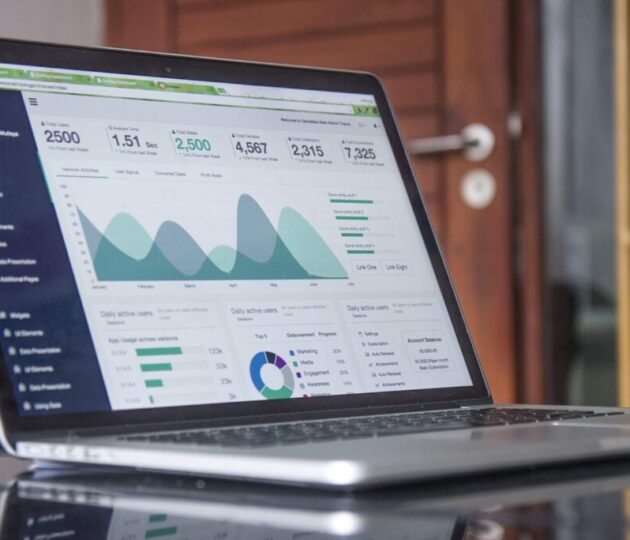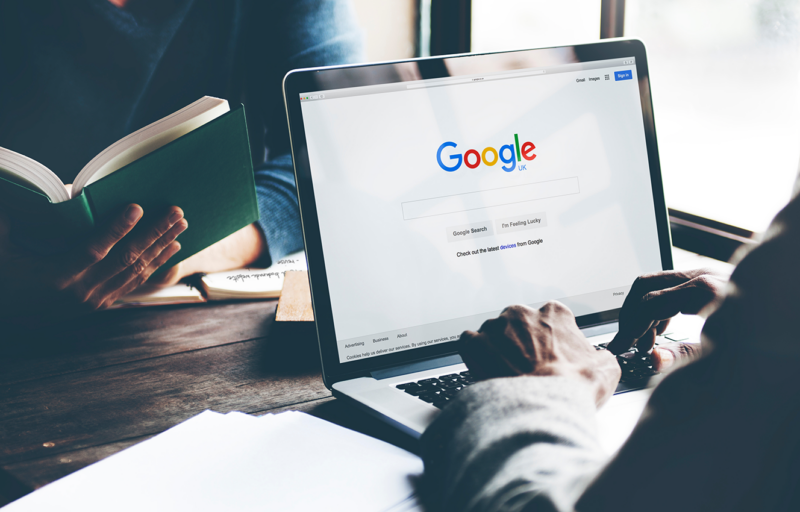blog:
SEO vs PPC landing pages: the benefits & differences

In the world of digital marketing, the decision about how to balance efforts between SEO (Search Engine Optimisation) and PPC (Pay-Per-Click) advertising is a constant challenge for businesses seeking to maximize their online presence, and at times it can even feel counter-intuitive!
While organic traffic generated through SEO is highly valuable, paid advertising campaigns can provide immediate visibility and targeted reach.
In this article, Henry Kilshaw, Senior Digital Marketing Executive explores the benefits and differences between pages optimized for SEO and those optimized purely for PPC. He also shares best practices, and how you can ensure your PPC and SEO efforts work together seamlessly.
Web Pages and Landing Pages
Organic traffic (the clicks from a search engine results page located underneath the paid, sponsored results) is extremely important, and across the vast majority of our clients here at ramarketing, we consistently see this channel producing the highest yield compared to the likes of PPC, organic social media and paid media.
Prioritising SEO, through keyword research, on-page optimization and technical improvements often lead to increased traffic, with a high percentage of these users having intent that closely matches your subject area.
Users who click on organic results on search engines tend to have more trust compared with sponsored placements. 34.8% of people recognize Google Ads in search, hence purposely don’t click on them! (Varn) As a result, organic users regularly reach sites optimistic to find the answer to their questions, or the service that meets their needs. As a result, the traffic we see from organic searches is often of high quality, with users more likely to visit more pages across the site, as well as them being more likely to become a lead through completing a contact form.
Despite its clear importance, prioritizing SEO on-page can seem like a burden. It seems a shame that I’d have to swap out the attention-grabbing header of my page to one more keyword-focused, just in the hope that Google will increase my rankings, doesn’t it?
So how can you maximize the effectiveness of your paid campaigning without jeopardizing your organic potential?
That’s where landing pages are key.
What is a landing page?
A landing page serves as a dedicated destination that can be used to promote a specific product, service, or offer. Its purpose is to bridge the user’s search intent with your website, allowing businesses to collect valuable data on potential customers and guide them through a predefined process that ultimately leads to a purchase or another desired outcome.
PPC and other types of paid advertising circumvent traffic, meaning you can send a user to a page of your choice. It makes sense these pages should be optimized for performance, without the burden of being optimized for SEO, you have full freedom to design and build pages you know your target audience will be interested in.
Compare a page purely optimized for SEO, to one fully focused on maximizing engagement and the percentage chance of a user becoming a contact or a lead. The SEO page would be packed full of keywords, whilst utilizing on-page content to prove to Google that the organization is a thought leader.
On the other hand, a conversion-based landing page would be built with a single audience segment in mind, with the aim of sending your leads to the next step in the funnel. Unlike a typical web page, the landing page is NOT crammed with multiple links and navigation buttons.
A landing page is a web page that is different from the rest of the pages on the website and has a single objective.
Why are landing pages useful?
Increased specificity
Specificity across Google Ads is pivotal. For a user to have the best possible experience (and the likelihood of becoming a lead), they need to only be shown an ad only when their query is relevant. If the ad does show, it needs to match their query closely, proving to the audience that their needs are being understood.
Following this, the page the user is directed to should also be as relevant as possible, ensuring the entire journey is seamless. This alignment increases the relevance of the landing page to the ad and improves the chances of the user submitting a form on-page.
Conversion Rate Optimization (CRO)
Landing pages are also designed with a specific conversion goal in mind, such as lead generation, sales, or sign-ups. Unlike a website’s homepage or other pages, landing pages are optimized to drive visitors toward taking a desired action.
By removing distractions and focusing on the conversion goal, landing pages increase the likelihood of achieving a higher conversion rate for your PPC campaigns.
Maintain consistency
Landing pages also provide an opportunity to maintain message consistency throughout the user journey. The messaging and tone used in the PPC ads can be seamlessly carried over to the landing page. Consistent messaging helps reinforce the value proposition, strengthens brand recall, and reduces any potential disconnect for the user.
A/B testing
If you’re interested in maximizing campaign performance, landing pages are also the perfect platform for conducting A/B testing and optimization experiments.
You can create multiple versions of a landing page, test different elements such as headlines, images, call-to-action buttons, or form fields, and analyze which variations yield better results. These lessons can then be applied across the business and for future marketing campaigns.
Quality scores
Utilizing landing pages effectively can positively impact your quality scores in Google Ads. Quality Score is an important metric that Google uses to evaluate the relevance and quality of your ads, keywords, and landing pages.
By aligning your landing pages with your ad content and delivering a seamless user experience, you can improve your Quality Scores. Higher Quality Scores can lead to lower costs per click and higher ad positions, maximizing the efficiency and effectiveness of your Google Ads campaigns.
When it comes to online marketing, the power of both SEO and PPC cannot be underestimated. While SEO focuses on generating organic traffic and building trust, PPC offers immediate visibility and control over audience targeting. Landing pages play a pivotal role in leveraging the strengths of each strategy.
By creating landing pages that are highly specific, conversion-focused, and consistent with your marketing message, you can maximize the effectiveness of your paid campaigns without jeopardizing your organic potential.
Furthermore, landing pages provide an ideal platform for A/B testing, optimizing campaign performance, and improving your Quality Scores in Google Ads.
By harnessing the benefits of both SEO and PPC pages, you can create a comprehensive marketing strategy that drives results, boosts conversions, and propels your business forward in the digital landscape.
If you’re looking for some support when it comes to digital marketing, ramarketing is the partner for you. Get in touch with our expert team to see how we use data-driven insight to help you get noticed and grow through digital marketing.
Related news, insight and opinion





